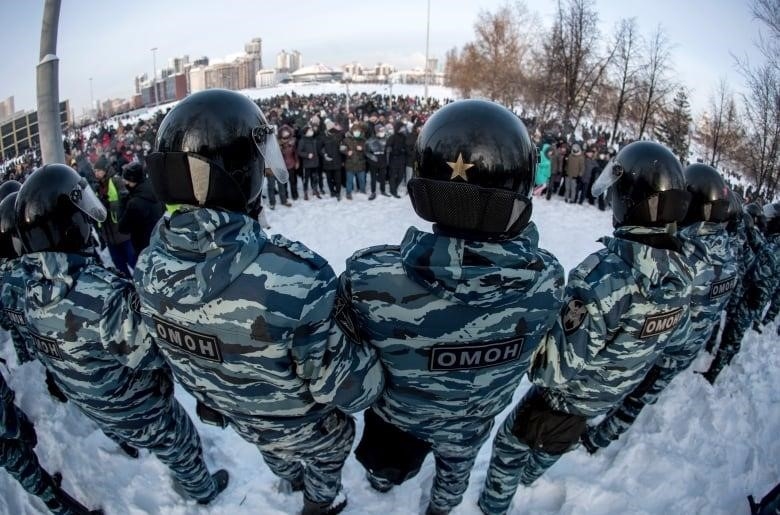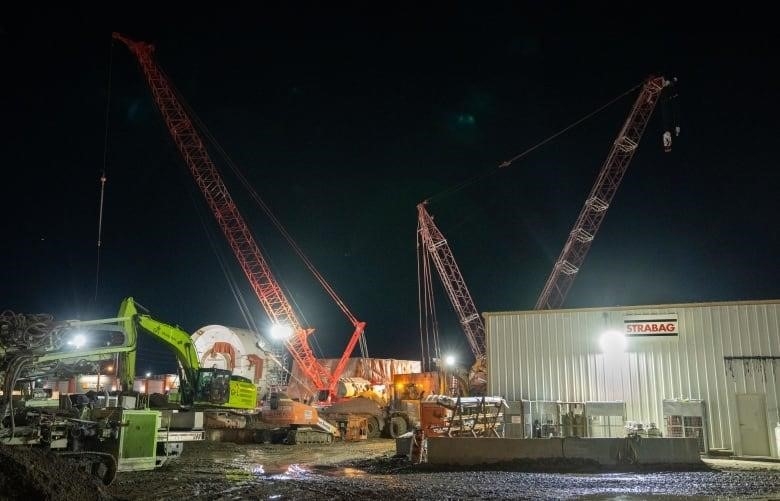
Transparency supporters say that for a long time, the government turned a blind eye to dirty money, but that may be about to change
According to internal government documents, the financial fallout from Russia’s invasion of Ukraine brought to light a problem that has been around for a long time in Canada: regulators don’t have basic information about who really owns key companies and assets.
As Canada tightened economic sanctions against Russian elites last year, officials across the West realized they couldn’t go after wealthy people who benefited from the invasion if the real, or beneficial, owners of businesses were hidden by layers of front companies or other accounting tricks.
Transparency supporters say that for a long time, Canada didn’t look into shady investors who bought valuable assets through anonymous holding companies. Their money was accepted, and often no questions were asked. Internal government files obtained through the Access to Information Act show that this is starting to change.
The “protected” from 2022 document from the Department of Finance said, “The Canadian government has been working with its provincial and territorial partners to make it easier to find out who owns a company.”
“Federal, provincial, and territorial Finance Ministers have agreed to make sure that corporations keep accurate and up-to-date information about who owns them.”
A Department of Finance spokesman told CBC News that a new federal registry that requires this information to be shared should be up and running by the end of the year.
But it’s not clear how well it can reach its goals if provinces and territories don’t work with it and share information across the country. It’s also not clear how many people will be working on the project to look into whether companies are putting accurate information in the registry.

‘Everyone turned a blind eye
Money laundering is worth between $45 billion and $113 billion a year, according to data from the government’s Criminal Intelligence Service. This includes anonymous trusts that own mansions in Vancouver and numbered companies with valuable corporate shares that are registered to post office boxes in the Toronto area.
The Panama Papers and other leaks showed how people use front companies to hide who really owns their investments, launder money from crimes, and avoid paying taxes.
But the war in Ukraine made it more important than ever to find out who the real owners of Canadian assets are, said James Cohen, the executive director of Transparency International Canada.
Watch: Trudeau announces new penalties for people who help Russia’s war effort:
Cohen told CBC News, “Everyone turned a blind eye because it was money, but they didn’t know that this was being used against us.” “” efore 2023, Canada was a laggard when it came to showing who owned what.We were behind many of our OECD and G7 peers by a long way.
“We will have moved from the back of the class to the front when Canada puts our registry online,” he said. “Russia’s invasion of Ukraine was a big final push to get this over the finish line.”
A spokesperson for the Department of Finance, Marie-France Faucher, told CBC News that the plan to make a “public and searchable beneficial ownership registry” was announced in March as part of the federal budget.
“This registry will include corporations governed by the Canada Business Corporations Act. It will be flexible enough to allow access to the beneficial ownership data held by provinces and territories that agree to take part in a pan-Canadian registry.”
It’s not clear how the database will look when it’s finished. It could be like online public disclosure databases like the federal lobbying registry, where a user can type in the name of a company and find out who really owns it, controls voting rights, and will make money from its activities.
“Patchwork regime” for showing who owns wha
Cohen said that the real or beneficial owners of publicly traded companies, which are usually larger businesses listed on stock exchanges, must already be made public.
The new rules extend those provisions to determine who is the person ultimately controlling a company — 25 per cent ownership or voting rights— to federally regulated, privately held firms, he added.

Previously, tracking whether beneficial owners of a company in Canada had ties to crime, corruption or human rights abuses fell to individual banks who handled their finances, Cohen said.
Most businesses are registered provincially, and the new federal rules won’t apply there. But some provinces are stepping up their own beneficial ownership requirements for companies; Quebec launched a system of beneficial ownership transparency in March and similar legislation has been tabled in B.C., Faucher said.
“The federal government will continue calling upon provincial and territorial governments to advance a pan-Canadian approach to beneficial ownership transparency,” she added.
Cohen hopes new provincial registries will be expanded, and will be able to communicate with the federal system, so information on who really owns private companies can be gleaned in a simple fashion.
The lack of a single database and rules on transparency which cross provincial boundaries could undermine the new initiative, said Malcolm Aboud, a corporate lawyer with the firm Osler in Toronto who tracks white collar crime.
“As of now, you have a patchwork regime with different provincial regulations,” he told CBC News. “In order to properly fulfil the goals of the legislation, some buy-in would be required with the provinces.”
Aboud said the new rules will lead to “some increased regulatory burden on businesses.” But he added that companies are already supposed to track their beneficial owners in their internal records, so providing this information to federal regulators shouldn’t be too onerous.
Real-time impact
Concerns about investors with criminal links, ties to violent regimes or implicated in corruption investing in Canadian assets as beneficial owners aren’t merely academic, another set of government documents showed. They are playing out in real-time.
A separate internal briefing note marked “secret” from Nov. 18, 2022 to the Minister of Intergovernmental Affairs Infrastructure and Communities spells out a situation involving sanctioned Russian oligarch Oleg Deripaska.
He is “a non-controlling, minority shareholder in the Austrian parent firm (Strabag SE).” That company is “working on major transit projects” in Ontario which to receive funding from the federal and Ontario governments, the note states.
Disclosures about Deripaska’s financial stake in vital Canadian infrastructure raised ire from politicians in Ontario and beyond who didn’t want to see a billionaire tycoon with interests in energy and metals who faces sanctions across the Western world benefit from government-funded transport projects.

A spokesperson Strabag SE, Marianne Jakl, told CBC News her company’s work is ongoing on subway projects in Toronto, and the firm is “ensuring the sanctions in place by various countries, including Canada, are fully implemented.”
Strabag “is also taking all possible legal steps to distance itself” from the investment firm Rasperia, which is partially owned by Deripaska and owns shares in the Austrian construction company, she said.
“For example, no dividend payments are made, the board member nominated by Rasperia has been removed and a proposal for capital measures has been tabled to reduce Rasperia’s shares.”
Real-estate blind spo
While the new beneficial ownership rules have been welcomed by transparency campaigners as a step in the right direction, they don’t extend to real estate investments, a government official said on background.
Analysts say Canadian real estate including condos or high-end homes have long been popular investments for shady characters.

“The government intends to work with provincial and territorial partners to advance a national approach to a beneficial ownership registry of real property,” the government official said.
Along with acting as a convenient money laundering vehicle for oligarchs, corrupt politicians or gangsters, “dirty money is that cyanide-filled cherry on top” of Canada’s housing price crisis, Cohen said, urging swifter action on ownership transparency for real estate.
